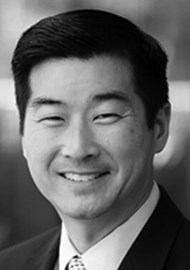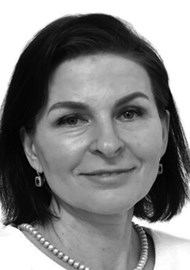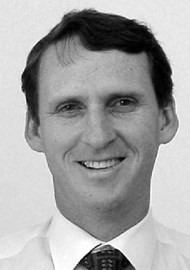Existing surgical outreach programmes to developing countries have been severely curtailed by the COVID-19 pandemic. This has impacted on opportunities for otolaryngologists from the USA and from other developed countries to contribute to education and training of otolaryngologists in developing countries. It is in this context that the otolaryngology department of the University of California San Francisco (UCSF) reached out to Africa through the African Head and Neck Society and provided complimentary registration for its members to attend the UCSF’s two-day head and neck surgical oncology and endocrine surgery conference.
How COVID has challenged otolaryngology education
At the time of writing this article, the COVID-19 pandemic is accelerating, with cases increasing around the world and exponentially within the United States.
As a medical community, our attention has fully turned towards adjusting to the changing landscape of care, providing safe care to our head and neck cancer patients, and protecting our trainees and staff, not to mention tending to our families near and far. Such diverse endeavours have left us with limited bandwidth for additional tasks.
Despite all the new challenges created by the pandemic, education remains central to UCSF’s academic mission for our students, residents, fellows, and to the community. Through hands-on teaching, dissection courses, and didactic lectures, we have continued to impart knowledge to the best of our abilities. The pandemic has pushed us to embrace technology and, even locally, limit traditional group lectures in favour of web-based teleconferences that can be viewed by our trainees.
“The pandemic has pushed us to embrace technology and, even locally, limit traditional group lectures in favour of web-based teleconferences that can be viewed by our trainees”
On a broader scale, collaborators from nearly 50 different academic programmes established the ‘Collaborative Multi-Institutional Otolaryngology Residency Education Program’ (https://sites.usc.edu/ohnscovid/), wherein lectures are given and deposited by experts from around the USA to help further resident education, especially at a time when many hospital systems were holding elective surgeries and curtailing regular clinical and educational activities.
Other educational efforts must also continue, such as those centred around providing Continuing Medical Education or CME credits, needed in the USA so that physicians may maintain their certification within their specialties. Normally, these credits are obtained through participation in educational events, national society meetings and presentations, or through online means. At UCSF, our department of otolaryngology - head and neck surgery hosts numerous CME events, which take over a year to plan and orchestrate. We call on our friends and colleagues, experts from across the country, to come give lectures, interact with the participants, and enrich the educational experience.
Virtual educational outreach to Africa
On 6-7 November 2020, UCSF hosted our biannual, two-day event centred on head and neck surgical oncology and endocrine surgery via ZOOM. The course was entitled ‘Management Strategies in Early and Late Stage Head and Neck Cancer’. Because of the uncertainty around travel, hosting large group meetings, and the potential for COVID-19 surges, we quickly pivoted to transform the event to be completely virtual for the first time. While we had all become comfortable with web-based meetings and presentations, it was not clear whether the audience would be ready, and whether there was an appetite for meetings of this kind to be completely online.
“The online platform allowed us to have greater participation from speakers from collaborating institutions”
The online platform allowed us to have greater participation from speakers from collaborating institutions, as they would not have to pay to travel and spend time away from their own practices and lives, but rather spend a focused amount of time lecturing and serving on panel discussions. We had overwhelming support of numerous speakers, and that inspired us to think more globally about the audience. To be financially solvent, attendees were charged a fee to attend and vendors lent support to offset our administrative costs.
With surgical outreach programmes to Africa having been severely curtailed by the COVID-19 pandemic, we approached the leadership of the AfHNS about the possibility of sharing our two-day course with African head and neck surgeons. We invited the 19 subspecialist head and neck surgeons based in Sub-Saharan Africa to the UCSF course and waived the registration fees. There was no incremental cost to our organisation, and we enjoyed having a more international audience.
Opportunities for virtual educational outreach to developing countries
As COVID-19 continues to influence our lives and educational interfaces, sharing content with colleagues in under-resourced regions of the world is a straightforward way of expanding educational opportunities. While this is dependent on the availability of internet access, increasingly there is global coverage even in low-resource settings [1].
There are many different models and paths to providing otolaryngology education locally and globally, each with unique purposes. Onsite teaching through short-term surgical trips, or through established fellowships, such as the University of Cape Town’s Karl Storz Fellowship in Advanced Head and Neck Surgery, provide hands-on training and dissection experience in the continent where most will end up practising [2].
Online learning resources such as journals, anatomy, surgical videos, and guidelines are freely available and provide didactic experiences about more fundamental procedures and disease processes. The Middle East Academy of Otolaryngology created a lecture series to broadly share their didactic content (www.me-oto.com/en/overview/webinar.html).
Case-based interactive learning through the African Head and Neck Society’s Virtual Tumor Board has also been established through monthly case reviews of patients from around Africa by expert multidisciplinary panels (www.afhns.org). The consultation of difficult and complex cases with international experts has become more vital and convenient via online discussions on an individual basis, as well.
“Future conferences are likely to employ hybrid models for in-person and remote participants, and therefore, the opportunity exists for continued engagement of a global audience in under-resourced areas”
CME conferences or national society-based meetings are likely to have content that is current, engaging, and given by experts. For instance, the Ghana National ENT Society meeting was done online and had three times the attendance as compared with previous experiences. Future conferences are likely to employ hybrid models for in-person and remote participants, and therefore, the opportunity for continued engagement of a global audience in under-resourced areas. As we become more adept with the technology, the ability to create interactive sessions will increase as well.
In Africa, virtual consultation with patients via video conferencing is gradually being adapted and becoming the norm. This has improved patient management and cuts transportation costs as they no longer have to make the arduous journey to the consulting room. This is further shown by an increased demand for consultations via messaging apps - WhatsApp being the most popular – for providing both details of the patient’s condition, as well as copies of their medical reports and investigations.
Conclusions
Didactic education has rapidly moved to a more virtual platform in the COVID-19 era, within departments, regionally and internationally. As a result, the ability to share content is more feasible than ever.
Understanding current practice guidelines and novel future directions requires frequent updates, which is the purview of CME conferences and national meetings. Engaging members from under-resourced areas of the world to participate in these meetings has no incremental cost and can elevate the knowledge level of physicians and surgeons to take better care of their patients, both in developed and developing countries. This model of virtual global surgery outreach will hopefully serve as a simple example to others to leverage new global communication platforms to improve the quality of otolaryngology teaching and training in developing countries.
Finally, we look forward to inviting global members to give lectures and educate others, as we all stand to learn from one another’s experiences.
References
1. Hancock M, Hoa M, Malekzadeh S. Educational Resources for Global Health in Otolaryngology. Otolaryngol Clin North Am. 2018;51(3):563-74
2. Fagan JJ, Zafereo M, Aswani J, et al. Head and neck surgical subspecialty training in Africa: Sustainable models to improve cancer care in developing countries. Head Neck. 2017;39:605-11






